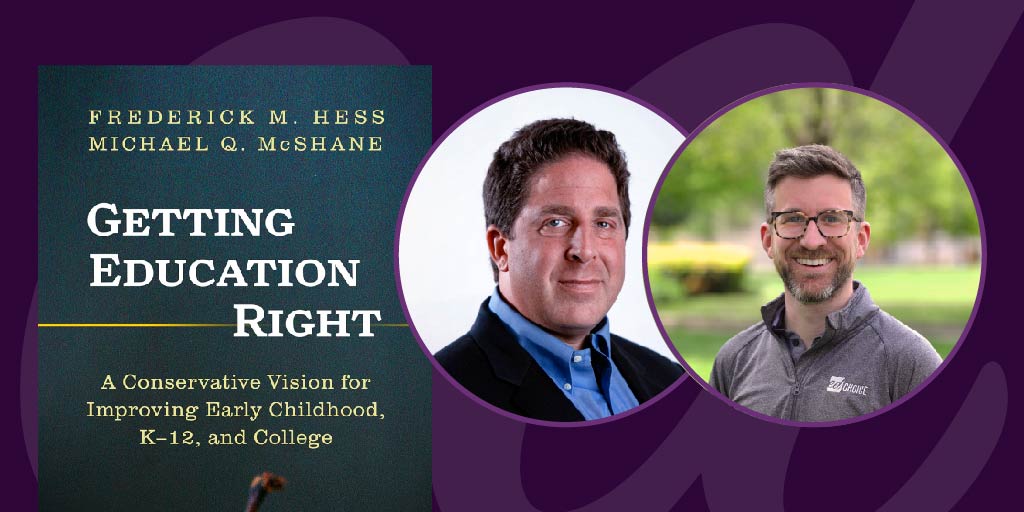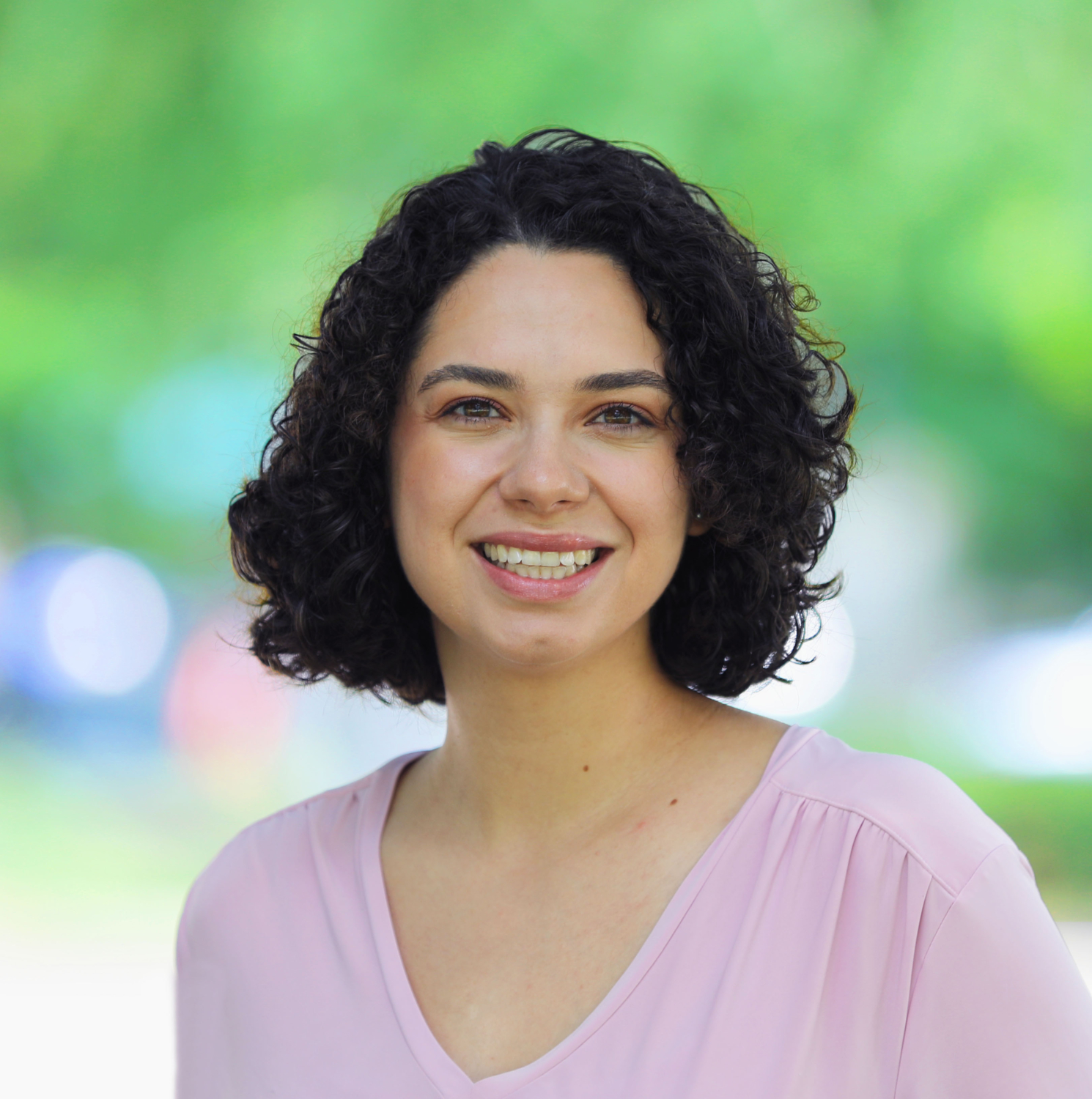McShane and Hess’ “Getting Education Right,” out now
The tides in education are turning. Whether it was the disruption of the pandemic, instability on college campuses, or the changing world of work, events have caused Americans to look at our educational institutions in a new light. There are openings for real change.
This is a time for the best of America to emerge. There are serious debates to be had about the shape and structure of our K-12 education system and the content that it endeavors to instill in the children that attend its schools. There are open questions about how colleges can find their rudder again and end years of drift. Parents need assistance when it comes to childcare and early childhood education, and there are many competing ideas as to how to provide it.
Into this discussion enters a new book by our Director of National Research Mike McShane and Rick Hess, Director of Education Policy Studies at the American Enterprise Institute. Titled Getting Education Right: A Conservative Vision for Improving Early Childhood, K–12, and College is out today from Teachers College Press. It articulates a set of conservative principles that should guide education policy making and then stakes out principled conservative positions on family policy, early childhood education, K-12, and higher education.
What are some of those principles?
McShane and Hess argue, for example, that education is a handshake. While compulsory attendance laws can make children show up, it is hard to teach a student who is dead set against learning. Now, part of a teacher’s job is to find the way to open a student’s heart and mind. By the same token, though, the job of parents and guardians is to raise children who are responsible, respectful, and ready to learn—and the job of students, especially by the time they are out of high school, is to assume responsibility for their learning. Education requires families and schools working together. If they are set at cross purposes, nothing good will come of it.
They also argue that education should instill love. Schools are community institutions—of, by, and for a local population with shared traditions, norms, and practices. As a general principle, schools should strive to respect those ideals. In doing so, a community can pass on its history and give kids an intellectual and cultural home. That can help strengthen and anchor young people, connecting them to their families, communities, and cultures.
At the same time, Hess and McShane believe that education should free students from the circumstance of their birth. While education is grounded in the bonds of community and cooperation, it is also about empowerment. Education is so central to the American creed because schools are both communitarian institutions that preserve shared culture and liberating institutions that free youth from the strictures of circumstance. For communities, education plays a critical role in perpetuating cherished norms and values; for individuals, it is also an engine that allows every student to chart his or her own course.
McShane and Hess go on to apply these principles across multiple education policy areas, arguing for educational institutions that partner with families, are flexible and human-centered, and work seriously to form both the children and adults that participate in them.
The book has already won praise across the political spectrum with Rick Kahlenberg of the Progressive Policy Institute saying that McShane and Hess “Decimate flabby educational thinking on all sides, then advance a provocative agenda grounded in clearly articulated first principles” and former Secretary of Education Margaret Spellings saying, “With historical perspective, good humor, and an abiding faith in the American project, they’ve penned a book that is as heartening as it is provocative.”





